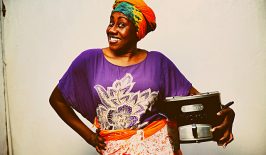Refugee women and children spend hours gathering firewood in unsafe zones. A log made of coffee grounds, wax and sugar could spare them these risky trips.
Refugees are, by definition, people who fled from their native countries to escape dangerous situations such as natural disasters, war and persecution. Unfortunately, the situation in refugee camps is not always perfectly safe. Wood is usually the go-to fuel to boil water and cook food. The problem is that as deforestation increases around the camps, people have to venture further out to find firewood.
“A lot of the time, it’s women and children that are going to harvest firewood. Because of deforestation, they have to trek up to 15 kilometres to get this firewood. Once they are outside of the camps, they are vulnerable to violence.”
– Matthew Frehlich, Moto
A Firewood Substitute Made of Used Coffee Grounds
A group of students from the University of Toronto have found an innovative answer to this issue in an everyday staple: coffee. They were able to create a log that burns for an hour and a half by mixing coffee grounds with wax and sugar and baking the resulting mixture. The team named the firewood substitute Moto, which means ‘fire’ in Swahili.
 © Moto Moto has the potential to save refugees time and also cut back on deforestation around refugee camps.
© Moto Moto has the potential to save refugees time and also cut back on deforestation around refugee camps.The team, which is composed of MBA and engineering students, is currently working on getting the log to burn for even longer. The Moto project started as part of the competition for the Hult Prize. The challenge for 2017 is to create a social enterprise that helps restore the rights and dignity of refugees.
Moto helps vulnerable refugees in two ways. Firstly, they no longer need to venture out of the camp to search for firewood, increasing their safety. And secondly, the hours that used to be spent looking for wood can instead be dedicated to educative or income-generating activities.
In regard to the environment, Moto helps turn waste (coffee grounds) into a resource. This eliminates the need to use wood, which could help curb the deforestation that tends to occur around refugee camps.






